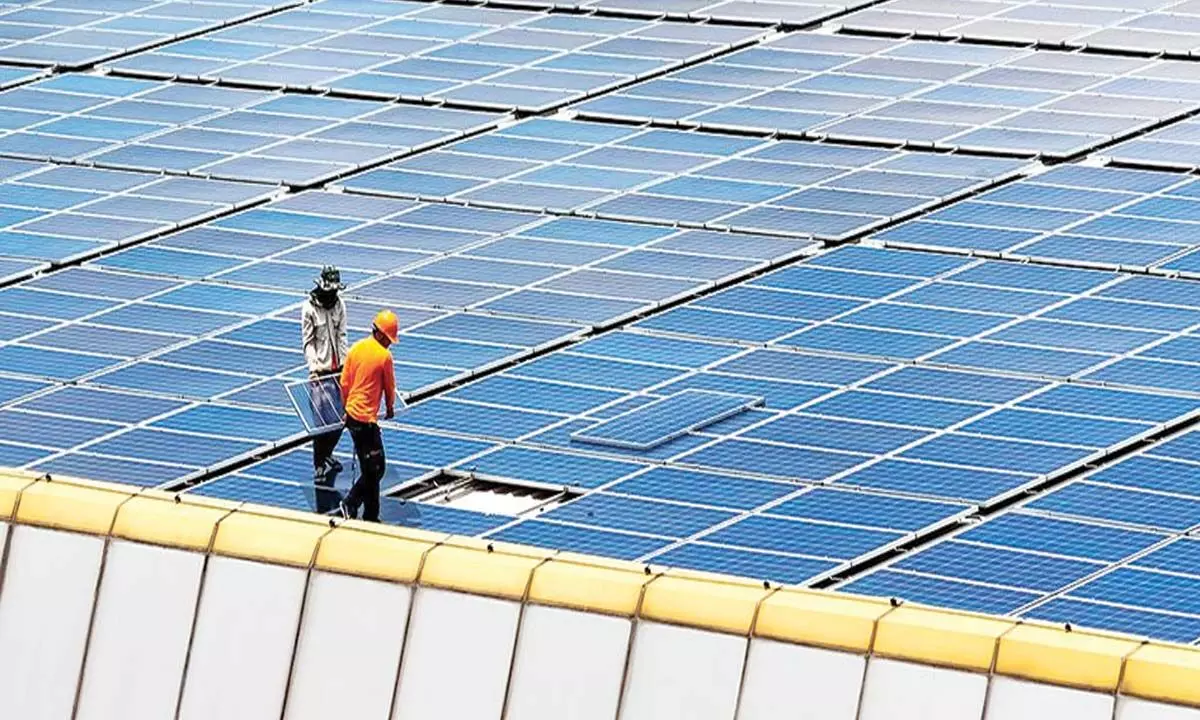Solar projects seeing cost pressure: Report
Key input prices are rising mainly driven by value chain disruption in China
image for illustrative purpose

New Delhi: The increase in prices of solar PV cells and modules coupled with the Basic Customs Duty (BCD) effective from April 1 is leading to cost pressure for solar power projects aggregating 4.4 GigaWatt (GW), according to Icra.
The rating agency said these are the projects awarded over the last 12-18 months. The cost of solar PV modules (mono PERC) has climbed by over 40 per cent to $27-28 cents per watt in the past 18 months, mainly driven by the disruption in operations across the value chain of the solar PV module manufacturing in China and the spike in the cost of polysilicon, a key input for module producers. The cost pressure is significant for projects aggregating to 4.4 GW which constitutes around 12 per cent of the projects under implementation in the country, Icra said in a report.
"The increase in solar PV cell and module prices along with the imposition of BCD on imported cells and modules is leading to cost pressure for solar power projects awarded over the last 12-18 months," Girishkumar Kadam, Senior Vice President & Co-Group Head - Corporate ratings at Icra, said. Last year, the government announced imposing 40 per cent BCD on solar modules and 25 per cent on solar cells with effect from April 1, 2022. While the bid tariffs have increased from the lows of Rs 1.99 per unit in Dec 2020 to Rs 2.2-2.5 per unit, the extent of the increase in bid tariffs remained lower than what Icra estimates is necessary to mitigate the increase in module prices, Kadam said. "The risk of moderation in returns is significant for projects aggregating to 4.4 GW awarded over the past 18 months, wherein the tariffs are below Rs 2.2 per unit," he added.
According to Icra, as modules are required to be sourced from domestic OEMs (Original Equipment Manufacturers) under the ALMM (Approved List of Models and Manufacturers) notification for projects awarded post-Apr 2021 and a majority of the domestic OEMs do not have backward integration beyond cells, the dependence on wafer/cell imports is likely to continue over the medium term. Recently, Union New and Renewable Energy Minister R K Singh said there are "no plans" to review the BCD levied on solar modules and cells. "I don't want any Chinese imports and want everything Made in India. As a result of the duty, the domestic manufacturing capacity of modules and cells has started going up," he had said.

